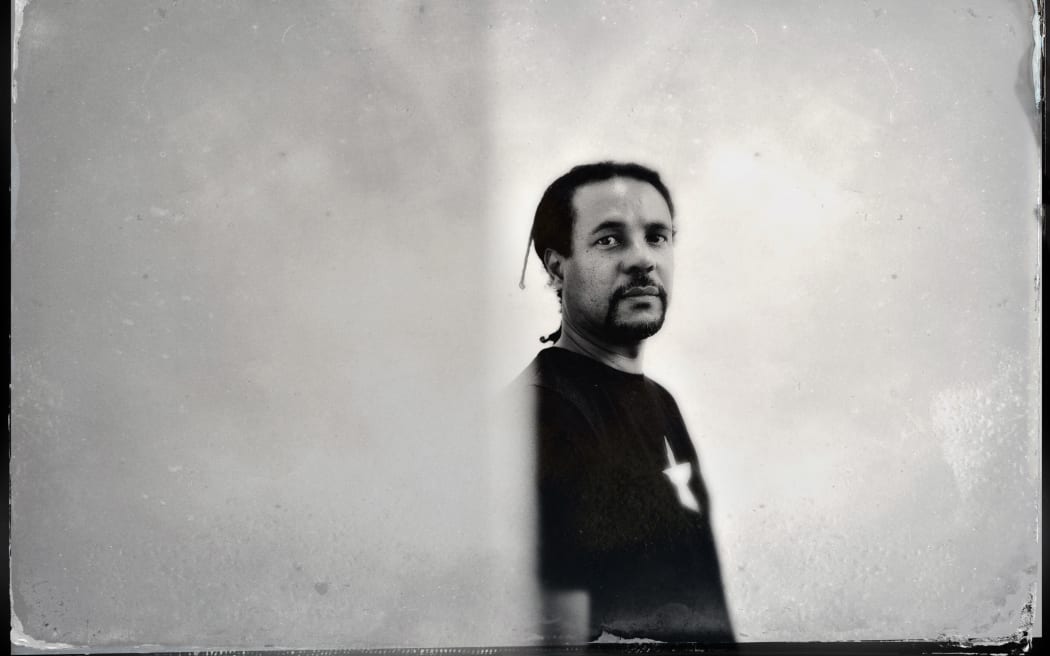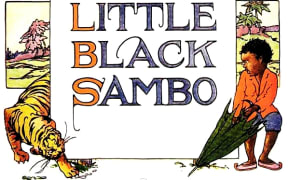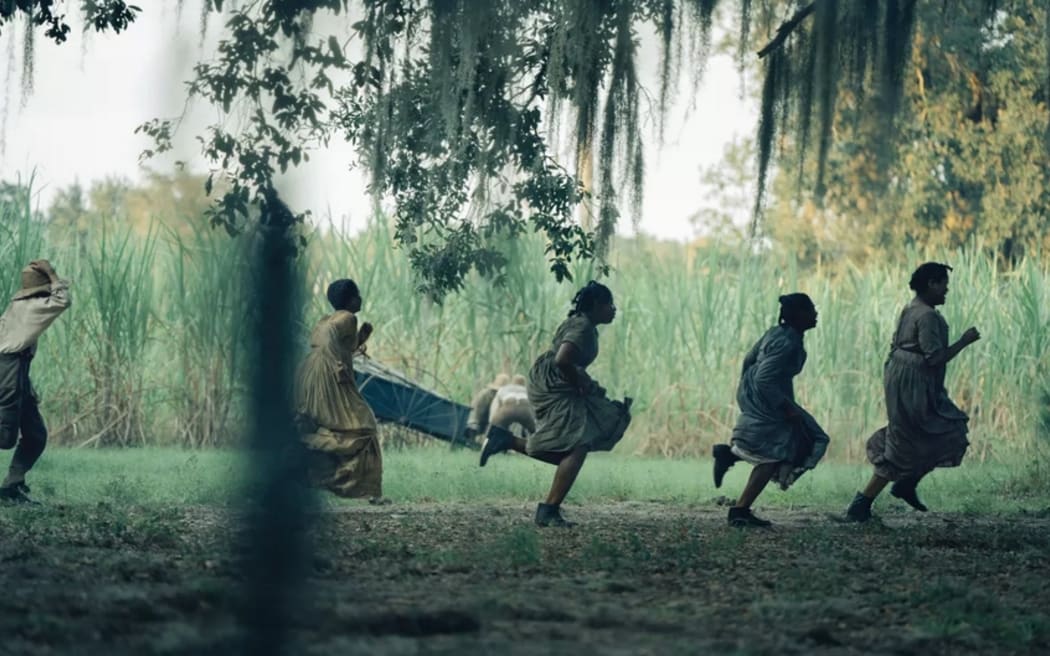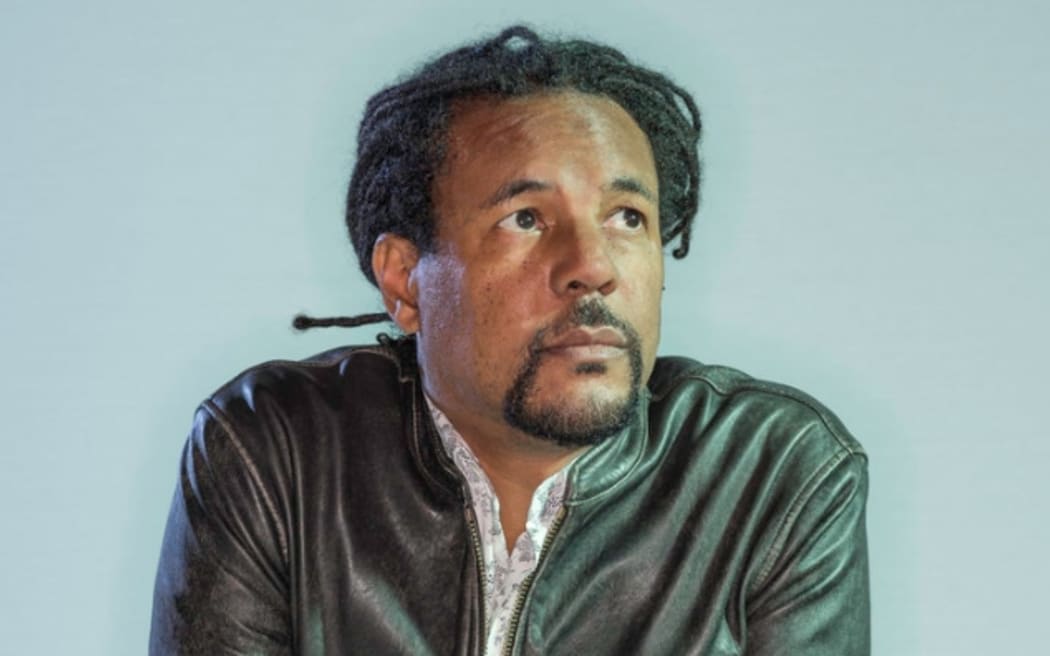
Colson Whitehead. Photo: MOLLONA / Leemage via AFP

Photo: Project Gutenberg
In his novel John Henry Days, the author Colson Whitehead includes moments of humour which appeal to Kim Hill. She says, “this is a joke I like: Tiny says, ‘you know, I don’t mean to be un-PC, but I like Little Black Sambo. My mother used to read me Little Black Sambo when she tucked me into bed at night. It’s a cute story underneath.’ And Jay Sutter says, ‘You were undisturbed by the eyeholes cut into the pillow you lay your little head on?’”
To laughter from the audience, she adds, “It’s good! They are funny. [However] The Underground Railroad is not funny. There are no jokes in The Underground Railroad.”

Image from Prime Video adaptation of The Underground Railroad Photo: Amazon Prime
Colson Whitehead explains that once he was committed to writing the novel (which posits a world in which there is a real underground railroad transporting slaves fleeing the American South to freedom), he was chose not to avoid that kind of ironic, sardonic, tone.
“I was not going to write a kind of slave story like Gone with the Wind,” he says. “I was going to be accurate, and undertaking the research, and coming to the material in my ‘forties, rather than being a kid watching Roots, I realised that my props, my jokiness would not fit. And also that it had to be really brutal just to be realistic. And I wanted it to be realistic because my ancestors had somehow survived that.”
“Terribly brutal,” Kim Hill agrees, and reads from the text:
On the third day, just after lunch, the hands were recalled from the fields, the washerwomen, the cooks and the stablehands interrupted from their tasks, the house staff diverted from its maintenance. They gathered on the front lawn. Randall’s visitors sipped spiced rum, as Big Anthony was doused with oil and roasted. The witnesses were spared his screams as his manhood had been cut off on the first day, stuffed in his mouth, and sewn in.
“Did that happen?” she asks.
“Castration was very common,” Colson replies. “You know, you castrate the black brute so he cannot defile white womanhood. And I found the story of a Jamaican plantation where they put shit in the slaves’ mouths and then sewed them shut. And slave punishments were routinely moments of spectatorship – the cautionary tale for the enslaved people, and also spectacles for the white onlookers. And then, when lynching became a way of controlling black people after slavery, some of the early American photography is lynching photographs, where the whole town has come out. And you see they light someone on fire and hang them. And Grandma and little Daisy and the whole town is smiling, and there’s this black figure who’s been destroyed.”
About the speaker

Photo: www.colsonwhitehead.com
Colson Whitehead
Colson Whitehead is the author of eight novels, including Pulitzer Prize-winner novels The Underground Railroad and The Nickel Boys, and his most recent Harlem Shuffle. His multiple awards include the National Book Award, the Carnegie Medal, the Heartland Prize, the Arthur C. Clarke Award, the Hurston-Wright Award, The Kirkus Prize, and the Orwell Prize for Political Fiction.
Website: https://www.colsonwhitehead.com/
Twitter: @colsonwhitehead
This session is broadcast thanks to the generous help of the Auckland Writers Festival held in May 2023

Photo: Auckland Writers Festival

